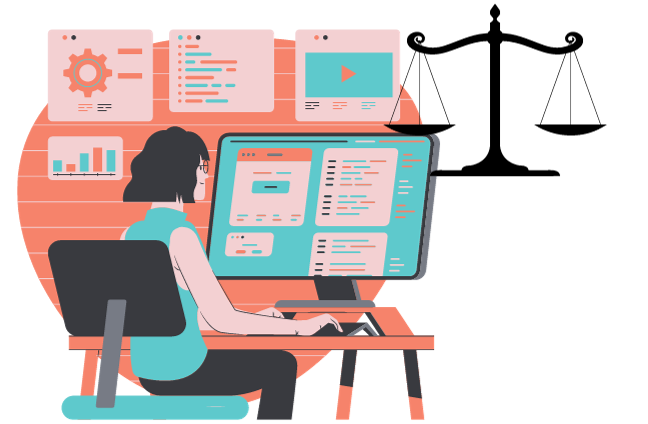

Case outcomes in the legal system can be greatly impacted by predictive analytics, a subset of advanced analytics that employs data, statistical algorithms, and machine learning techniques to determine the likelihood of future outcomes based on historical data. Predictive analytics may affect case outcomes in the following ways:
Risk Evaluation and Guidance Support:
Legal practitioners can get help from predictive analytics in determining the risk involved in different types of cases. Technology can determine trends and variables that could affect a case’s chances of success or failure by examining past data.
To assess possible outcomes and make more educated decisions about case strategy, settlement options, and sentencing, judges and attorneys can use predictive analytics tools as decision support systems.
Setting Case Priorities and Allocating Resources:
Legal firms can rank cases according to their complexity or chance of success by using predictive analytics. This makes it possible to allocate resources more effectively, guaranteeing that cases that are more difficult or high-risk get the time and resources they need.
Early Evaluation of the Case:
Early case assessment can be facilitated by predictive analytics, which offers insights into a case’s advantages and disadvantages. This could result in more favorable outcomes by enabling legal professionals to make strategic decisions early in the litigation process.
Predictions for Sentencing:
Predictive analytics can be used in criminal cases to evaluate the possibility of sentencing outcomes based on pertinent variables like the nature of the offense, the defendant’s prior criminal history, and others. Judges can use this information to make more educated decisions about sentencing.
Settlement Talks:
Predictive analytics offers data-driven insights into possible trial outcomes, which can help guide settlement talks. Using this information, disputing parties may be able to reach settlements that approximate what would happen in a court of law.
Legal Investigation and Case Study Analysis:
Through the analysis of enormous volumes of case law and the identification of patterns and trends, predictive analytics can help legal professionals with their legal research. By understanding how cases like theirs have been resolved in the past and citing pertinent precedents, this can help attorneys make stronger arguments in court.
Reducing bias and Enhancing Equity
Predictive analytics could lessen human biases in decision-making because it is based on data-driven insights. A more equitable and unbiased legal system can be achieved by using algorithms that are created to avoid discriminatory practices and concentrate on pertinent factors.
Conclusion
It’s crucial to remember that, even though predictive analytics can provide insightful information, applying it to the legal system presents ethical questions. These include issues with data bias, algorithm transparency, and the possibility of escalating already-existing disparities. Legal practitioners must make sure that the application of predictive analytics is consistent with the values of justice and fairness by carefully weighing the ethical ramifications of doing so.







